The Austerlitz Historical Society is pleased to offer an annual series of free “talks” at Old Austerlitz. Talks include a wide variety of fascinating topics, from local and regional historical topics to art, craft and architecture.
Schedule of Talks for 2023:
OCTOBER 29
Hidden History in Our Hills and Valleys
Sunday October 29, 2023 at 2:00 PM Old Austerlitz Church, 11550 State Route in Austerlitz, NY
Elizabeth Frishkoff will give a talk titled ” What The Walls May Say… Hidden History in our Hills and Valleys.”
By studying Algonquin languages, consulting with Native Elders, and walking the land, hills, and waterways, Elizabeth has gained intriguing insights into the pre-colonial, pre-contact history of what we now call Columbia County. Elizabeth grew up enjoying the many beauties of the hills and valleys of this area, and currently lives in Ghent, NY.
Join us for a virtual walk through our hills, valleys, waterways, and stonewalls as Elizabeth presents her discoveries of how our area was lived-in for thousands of years, many of which are hidden in plain view, indicating those aspects surrounding us today.
This is the Austerlitz Historical Society’s final event in a series of free presentations for the 2023 season.

JULY 2, 2023
Birding the Hudson Valley
Birding the Hudson Valley featuring author Kathryn Schneider is the topic of the Austerlitz Historical Society’s third in a series of monthly talks on Sunday, July 2 at 2 p.m. The presentation with photos and slides from Schneider’s recent book about her birding adventures and observations will be replete with tips, guidance and encouragement for bird enthusiasts of all levels to leave their backyard bird feeders and explore the rich diversity of bird life in Columbia County and beyond.
The program is free and open to the public at the Morey-Devereaux Barn at Old Austerlitz.
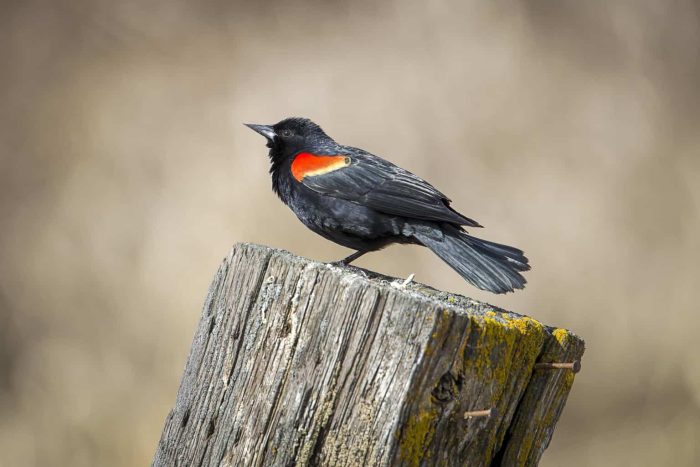
Kathryn Schneider grew up in Claverack, New York went to Hudson High and then attended Cornell and Princeton universities, where she completed a PhD. She taught college courses in general biology and ornithology at the University of Richmond and later at Hudson Valley Community College. In 1986 she returned to Columbia County and for 14 years directed the NY Natural Heritage Program, a biodiversity inventory program run jointly by The Nature Conservancy and the New York State Department of Environmental Conservation. As a consultant, she conducted bird surveys for the US Fish and Wildlife Service. She is past President of the New York State Ornithological Association, a former member of the Columbia County Environmental Management Council, and a Columbia Land Conservancy volunteer. She currently co-chairs the Steering Committee for NY’s third Breeding Bird Atlas Project.
JUNE 11, 2023
A Store in Time
The Austerlitz Historical Society’s second talk for the 2023 season is a presentation entitled: A Store in Time: The Reamer’s Spencertown Store 1973-2001.
The talk on Sunday, June 11, 2023 begins at 2:00 p.m. in the Morey-Devereaux Barn at Old Austerlitz, 11550 NY-22, Austerlitz, NY 12017. The program is free to members and to the public.

For 28 years Tom and Carole Reamer operated in Spencertown a country store of a type now belonging to history. It sold just about everything, drawn from over 50 suppliers, including Carole’s renowned and ever-expanding line of baked goods. The store was the social center of the town of Austerlitz, both for full time residents and weekenders from the city. You could write a book about it all, and Tom Reamer did last year: Spencertown Days, published by the Austerlitz Historical Society (it will be available for purchase).
When the Reamers moved to the hamlet of Spencertown in 1973 their lives would change forever. Like most urban transplants, the change to a rural setting took considerable adjustment: there were new things to learn and a number of things to unlearn. In their case, taking on for the first time the ownership and management of the general store required that they learn rather quickly! The Reamer’s recollections of those early days are both funny and poignant. The program will consist of an informal conversation between Tom and Carole Reamer and many of their former store employees reminiscing about the Reamer’s quarter of a century operating the Spencertown general store.

MAY 14, 2023
The Recovery and Return of Mohican Artifacts
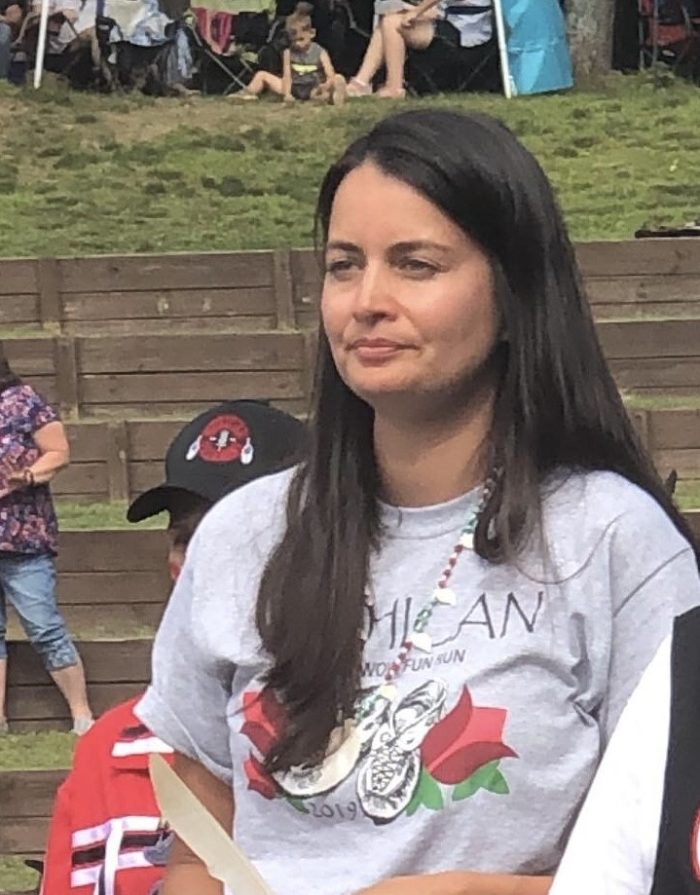
The Austerlitz Historical Society’s premier talk for the 2023 season is a presentation entitled: The Recovery and Return of Mohican Artifacts by Bonney Hartley, the Stockbridge-Munsee Tribal Historic Preservation Manager.
The talk on Sunday, May 14, 2023 begins at 2:00 p.m. in the Morey-Devereaux Barn at Old Austerlitz, 11550 NY-22, Austerlitz, NY 12017. The program is free to members and to the public. (The Shop at Old Austerlitz will be open before the presentation from Noon-2:00pm.)
The Stockbridge-Munsee Community, now located in Wisconsin, is the
Tribal Nation indigenous to the Berkshires and Hudson Valley. Bonney Hartley leads its efforts to repatriate artifacts of significance to the Community. Her talk will highlight how local individuals and museums have honored Mohican history by returning family heirlooms, museum exhibits and other cultural items.
Bonney Hartley is an enrolled member of the Stockbridge-Munsee Community and holds a Master of Social Science degree in International Relations. She manages Stockbridge-Munsee’s Tribal Historic Preservation office, which is based in Williamstown, MA under a partnership with Williams College. She serves on the National NAGPRA Community of Practice Steering Committee, and the Board of Trustees of Historic Huguenot Street, and the Erie Canalway National Heritage Corridor.
Schedule of Talks for 2022
JULY 2022
VOGUE: The Austerlitz Edition

The Austerlitz Historical Society continues its series of talks on Sunday, July 17 at 2pm when Phyllis Chapman presents Head to Toe: What They Wore, How They Wore It, and Why it Mattered, an exploration of the shape-shifting variety of 19th century fashions.
Corsets for men? Bustles and shoplifting? Beetle embellishment? Do they get it right in the movies? This fun look at stuff that doesn’t get mentioned in history books demonstrates the wide variety of style, silhouettes and fads that kept the fashion-conscious on their toes and illustrates that we do define ourselves through dress. As Mark Twain observed, “Clothes make the man. Naked people have little or no influence on society.”
Chapman will speak on Sunday, July 17 at 2:00 p.m. in the Historic Austerlitz Church, NY Rt. 22, Austerlitz, N.Y. The talk is free and open to the public.
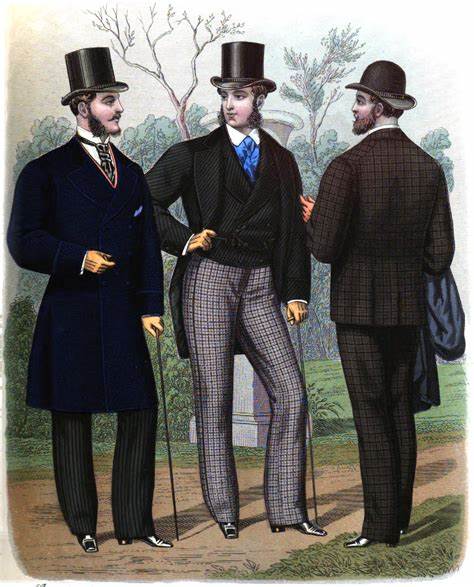
Vintage Visitors is composed of Phyllis Chapman, historic interpreter, her husband, Mike Chapman, audio/visual creator and technical director, and associate Kristen Marcoux, seamstress and assistant at fashion shows and other living history demonstrations.
JUNE 2022
African-American Foodways in Early America

The Austerlitz Historical Society is pleased to announce that Lavada Nahon, a culinary historian and interpreter of African-American history for New York State, will be presenting a talk on early American food in the New York region. The talk is titled: African-American Foodways in Colonial and post-Colonial New York, and is open to the public free of charge. Her emphasis is on the contribution of enslaved cooks in the homes of the local elite who helped shape what we eat and cook today.
The presentation will take place on Sunday, June 12th at 2 p.m. at the society’s historic Austerlitz Church located on Route 22 in the hamlet of Austerlitz, NY (parking is available on the north side of the church and schoolhouse).
Many Austerlitz Historical Society members fondly remember the fascinating cooking classes Ms. Nahon conducted a few years ago in the Morey-Devereaux House where she taught workshop attendees new (but centuries-old) techniques in cooking. Using the house’s fireplace and beehive oven she introduced a completely new and delicious repertoire to our every-day life. The apple pie and chocolate wine were particularly memorable and delicious.
Ms. Nahon is the current Interpreter of African-American History for NYS OPRHP-Bureau of Historic Sites. Her credentials include her time at Fraunces Tavern, Historic Hudson Valley, the New York Historical Society, the Albany Institute of Art and History, the Dyckman Farmhouse Museum, Johnson Hall and many other historic sites. Her mission is “to bring history to life by giving presence to the Africans and people of African descent enslaved and free in New Netherland/New York.”
Lucky Rehabilitation
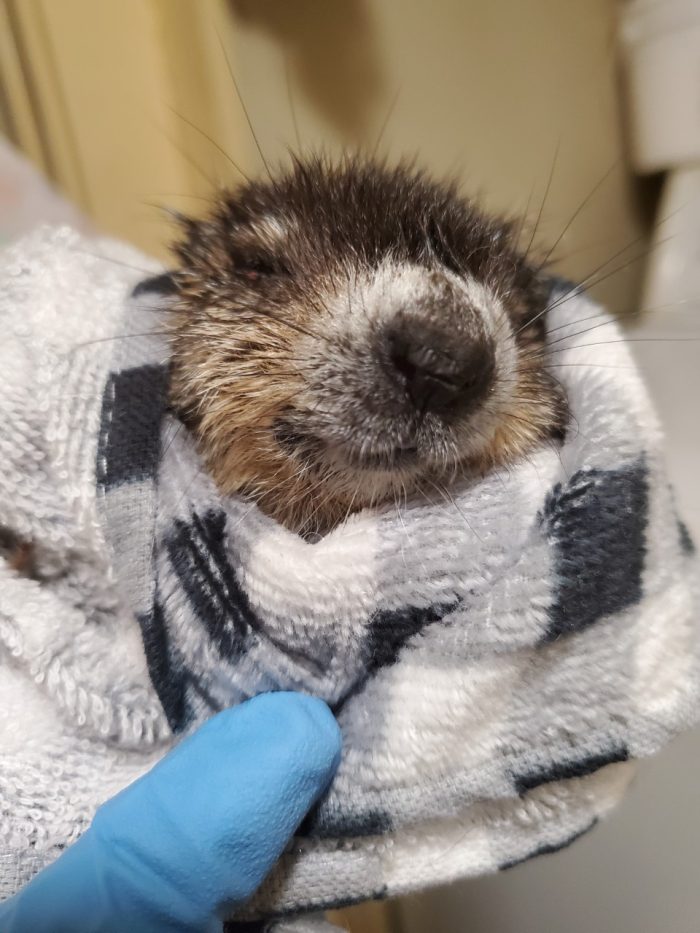
On Saturday June 18, at 2pm, in the Old Austerlitz Barn, Sue and Maria Geel will talk about their work with wild animals. The talk is free of charge, and if we’re lucky they may even bring an animal or two (it depends on animals available at the time). This is a great talk to bring your children.
Lucky Rehabilitation Center (LRC) is a small, privately funded organization in Spencertown, NY dedicated to the care and rehabilitation of injured, orphaned or sick wildlife, with the express intent to release the wildlife back into the wild.
Sue and Maria Geel, a mother/daughter team, are NYSDEC licensed wildlife rehabilitators with approximately 20 years’ experience with local wildlife between them. They have been motivated to create this center with the community in mind. There will be opportunities for volunteering, as well as, educational tours, etc. The center itself is named after Maria’s very first experience with rehabbing a Canada Goose she named, “Lucky”, which she found when she was 8 years old.
MAY 2022

The Art of the Cooper
Sunday, May 15, 2022 at 2:00pm in the Historical Austerlitz Church
The Austerlitz Historical Society will sponsor a talk by cooper John Cox on Sunday, May 15, 2022 at 2:00 pm at the historic Austerlitz Church on Route 22 in the hamlet of Austerlitz, NY. The talk is titled The Art of the Cooper: A look at the barrel’s local historical significance and the coopering process, and is open to the public—free of charge. Parking is available next to the church and schoolhouse.
What is a cooper?
Coopers were and are barrel or cask makers. In early America, barrels were used to store and ship almost any commodity you can imagine, including dried grains, corn, salted meats (pork, beef, fish), wine, rum, tobacco, naval stores (pitch, tar), gun powder, cloth, etc.
The process of making a barrel is a lot more difficult than it may look. Coopers are among the most highly skilled of all artisan craftsmen, able to make barrels in a variety of sizes and shapes to meet their client’s needs.
After a 28-year career in high-end interiors and custom fabrication working for such artists as Wendell Castle and Albert Paley, John Cox opened Quercus Cooperage of High Falls, NY in 2014 where he makes barrels and tanks for the spirit and culinary industries.
Using age-old techniques gleaned from studying the ancient process and by using antique hand tools, John was able to unlock the trade secrets of coopering and is now one of only 30 cooperages left in US.
John is a fascinating speaker with extensive historical knowledge and practical experience. You will be amazed at what you learn.
OCTOBER 2021

Students of the Weather: The 19th century New York Network that Gave Birth to the National Weather Service
Conrad Vispo, from the Hawthorne Valley Farmscape Ecology Program, will discuss the 19th century New York Weather Network on Sunday, October 3, 2021 at 2 pm in the Morey-Devereaux Barn at Old Austerlitz. All are welcome and admission is free.
Then as now, the weather was a crucial ingredient of farming – knowing what crops should be planted when in a given year, when to expect rain, and when to prepare for a storm were all important, if largely unknown factors influencing 18th and 19th century agriculture. When agriculture was the mainstay of the State’s economy, studying the weather was a central pursuit. Key to developing that understanding was having a network of observers across the state who could diligently report the weather in a standardized way. What better set of observers than the scholarly folks who ran the many academies across the State? Recognizing this potential, the Regents sent basic meteorological instruments and instructions to the academies they supervised, and a precursor of the National Weather Service was born. Aside from recording weather statistics, academies were also asked to note down important seasonal events, such as the flowering times of various plants, the appearance of certain animals (including Passenger Pigeons!), and seasonal agricultural milestones such as the harvesting of hay – data which, nearly 200 years after the start of the network, allow us to mark the ecological effects of a changing climate. This talk will survey the history of the network, its relevance to understanding today’s climate, and some of the data collected by Columbia County’s own participants.
Conrad Vispo (pictured above in typical field garb), PhD Wildlife Ecology, University of Wisconsin; MS Wildlife Ecology, Indiana State University; BS Wildlife Ecology, Cornell. Before returning to Columbia County, where he grew up, Conrad conducted ecological research on a variety of organisms, including mammals, birds and fish in a variety of places, including the woods of northern Wisconsin and tropical Venezuela. Conrad’s recent focus is on agroecology – what habitats can farmland provide for native species and, in turn, what can those native species provide to farming? Conrad’s passion is understanding historical and modern patterns of animal (including human) ecology on the land.
JULY 2021
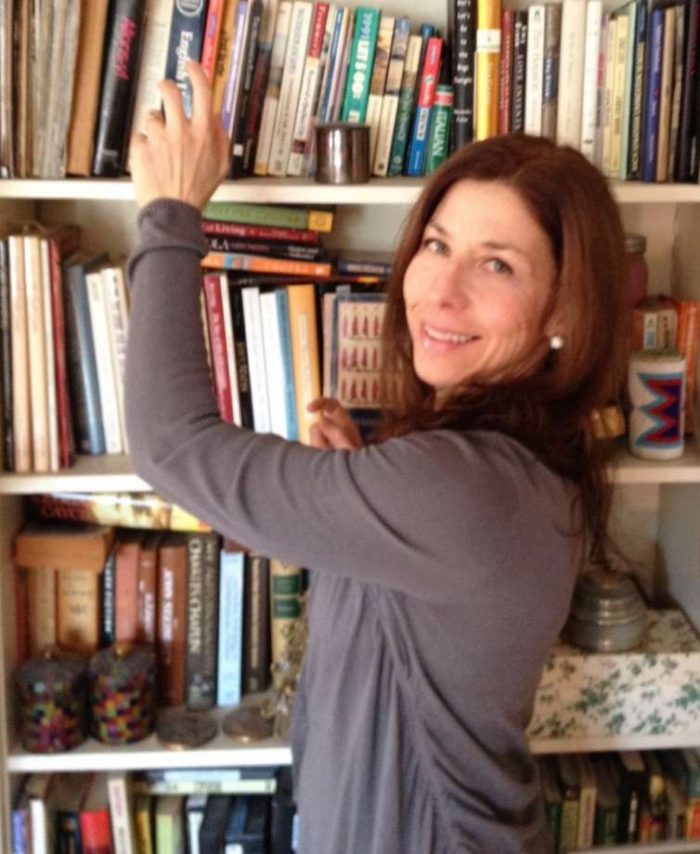
A Hidden History of Columbia County
Local history author, Allison Guertin Marchese, will reveal some little-known stories of Columbia County and Hudson Valley history on Sunday, July 25 at 2 pm in the Morey-Devereaux Barn at Old Austerlitz. Allison is the author of two books, The Hidden History of Columbia County, NY (Arcadia/History Press 2014), and Hudson Valley Curiosities (Arcadia/History Press 2017). The talk is free and all are welcome.
Among the intriguing subjects of Ms. Marchese’s talk are the sulphur springs of the county and the spiritualist movement that swept through the City of Hudson taking in its wake a prominent lawyer and judge. She will also expose a little-known fact about Eleanor Roosevelt and the secret behind a special revolver Mrs. Roosevelt received as a gift from her bodyguard. Then there is the story of the hamlet of Neversink which was submerged under water to form a reservoir for New York City. Allison will also provide a sneak preview of her forthcoming book Lost Columbia County to be published in the summer of 2022 by Arcadia/History Press.
Allison Marchese is a graduate of Fordham University with a degree in communications and creative writing. She spent much of her professional career in public relations and fundraising for non-profits. In her work as a writer, Allison has created plays and written short fiction, feature articles, and essays on the people, places and events in her adopted home of Columbia County, NY where she has lived for 30 years. She and her husband live in a former 1740s roadhouse/stagecoach stop in Malden Bridge, NY.
Past talks:
APRIL 2021
The Hidden Secrets of Your House and Buildings: English or Dutch?

The Austerlitz Historical Society is proud to host Jack Sobon, an architect and master craftsman, who will deliver three talks on the history and development of timber framing in New York and New England.
The series will be of especial interest to owners of historic houses built before the late 1800s and will examine the two predominant techniques used to erect houses and buildings at the time: English and Dutch. The choice of technique can reveal much about the ethnicity of the builder and the house’s original owner.
Talks are free of charge and will be presented via Zoom (see schedule below). Each of the three talks requires a separate registration. Registration is simple, you will be asked for your name and email address only and will then be sent an email with the link to the talk.
Hand Hewn, The Traditions, Tools, and Enduring Beauty of Timber Framing. Wednesday, April 14th, 7-8 pm (8-8:30 pm questions) An examination of the history of this enduring craft, the beauty and proportion of preindustrial craftsmanship, the appeal of vernacular architecture, and the relevance of timber framing today. Registration Closed
New Netherlands Timber Joinery, A Carpenter’s View. Wednesday, April 21st, 7-8 pm (8-8:30 pm questions). An exploration of the timber joinery unique to areas settled by the Dutch in New York as well as culturally-transitional areas such as eastern Columbia County and western Massachusetts. Due to the abundance of timber found in these areas, Dutch carpentry reached its zenith by the early 19th century.
The English Barn. Wednesday, April 28th, 7-8 pm (8-8:30 pm questions). A close look at the barns that predominated in much of the English-speaking Northeastern U.S. (including the Morey-Devereaux barn located at Old Austerlitz). The barn’s function, layout, history and the tools, carpentry, and measurement systems (scribe and square rules) used will be examined.
Jack Sobon is one of the leading experts on traditional timber framing in the United States. Sobon has published four books (among them: Historic American Timber Joinery, A Graphic Guide and Hand Hewn: The Traditions Tools, and Enduring Beauty of Timber Framing) and numerous articles on the subject and has lectured extensively.
A founding director of the Timber Framer’s Guild of North America and the Traditional Timber Frame Research and Advisory Group, Sobon has devoted his 41-year career to understanding the craft of timber framing. A graduate of the Rhode Island School of Design, Sobon teaches and consults internationally on traditional building structures and timber-framing techniques. He is currently restoring a Dutch house recently discovered in Hillsdale, NY.
MAY 2021
Discovering the History of Your House
On May 26 the Austerlitz Historical Society will present a Zoom program on how to research the history of your house property. The speaker, Austerlitz Town Historian Tom Moreland, will demonstrate how to use the deed and mortgage records in the County Clerk’s office, and other materials to trace the ownership of your property back as early as records exist.
The program, which is free of charge to the public, will be given via Zoom on Wednesday, May 26, at 7 pm. Registration Closed.
Tom Moreland is the author of The Old Houses of Austerlitz, The history and early architecture of a rural New York town, published by the Society in 2018. Based on Moreland’s research over some six years, the book details the history of each of the 168 existing buildings in Austerlitz — 158 of them houses — which appeared on the 1888 town atlas. It is Moreland’s practical experience in compiling those histories that forms the basis for his talk
New to Zoom?
Anyone can join a Zoom meeting, even if you do not have a Zoom account. You can join the meeting via your web browser or by downloading the app (the download is quick and easy and free) We suggest that you download the app, it will make joining future Zoom meetings easier.
Step 1: Open your browser and log into your email account.
Step 2: Find and open the email we sent to you that contains the talk link.

Step 3: Click on the invite link and Zoom will redirect you to a webpage. This webpage will ask you to download the Zoom app on your device whether you are using a desktop or a mobile device.

Step 4: Once the application is downloaded on your desktop or device, install and open it. Zoom should automatically open the meeting of concern. If it does not open, head back over to your email and click on the invite link again. You will now see a prompt to open the link in the Zoom app.

Step 5: Grant the necessary permissions (which will appear in pop-up boxes) to the Zoom app to use your camera and microphone in order to get started and join the meeting. (If you decide that you do not want to be seen during the meeting, simply click on the video button on the lower left bottom of your screen – a slanted red line will appear on the video button indicating that your video has been muted and only your name will appear. You can also mute your microphone (next to video button) in the same manner. You can reverse the process by clicking on the button again.)
